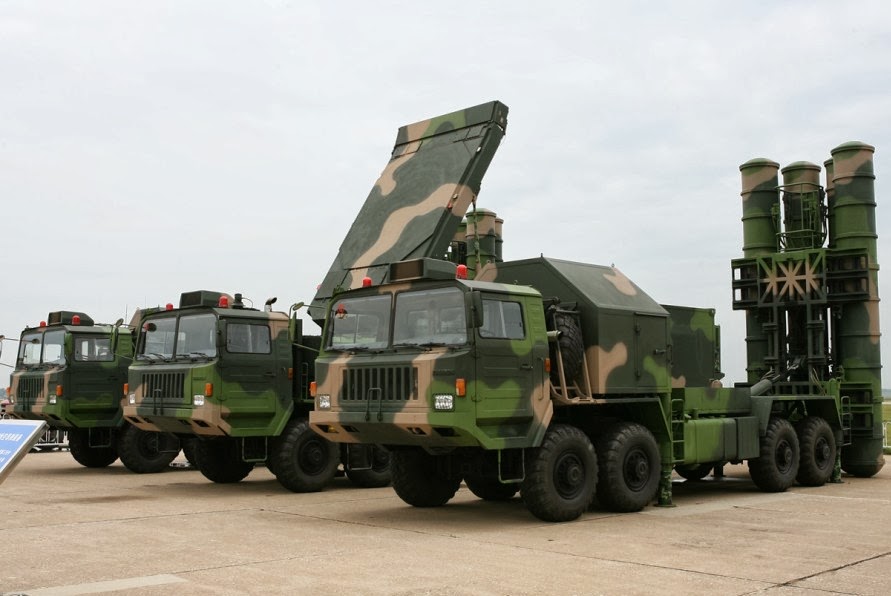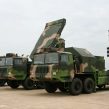
Turkey’s Difficult Choice: A Co-Produced Defense System with China?
Publication: Eurasia Daily Monitor Volume: 10 Issue: 191
By:

Turkey has been negotiating with a Chinese firm, the China Precision Machinery Import-Export Corporation (CPMIEC), to co-produce a $3.44 billion long-range air and anti-missile defense system. This has not only strained Ankara’s relations with Washington, but also raised the question of whether the deal indicates an ideological or geopolitical shift in Turkey’s foreign policy and security aims. Although the Chinese option may indeed result in political repercussions for Turkey’s relations with the United States and the North Atlantic Treaty Organization (NATO), the decision itself was not motivated by ideological or geopolitical concerns. Rather, Turkey’s negotiations with Chinese defense contractors represent a purely instrumental and strategic decision for an aspiring regional power that has been seeking to bolster its own national defense industry since 1985.
Tension mounted between Turkey and the Transatlantic security community when Murad Bayar, Turkey’s undersecretary for the defense industry (SSM), announced on September 26 that Turkey had short-listed China’s FD-2000/HQ-9 surface-to-air missile (SAM) system to meet its six-year air defense project, titled T-Loramids (Hurriyet Daily News, September 26). Turkey’s decision to start “contract negotiations” to purchase critical high-tech defense equipment from China created quite a surprise and discontent in the West, especially because in early 2013 Turkey received six NATO Patriot Missile batteries from the US, Germany and the Netherlands to help defend itself against possible missile attacks from Syria. Indeed, US and NATO officials have expressed “serious concern” over Turkey short-listing the Chinese company, emphasizing that the Chinese missile defense system would not be interoperable and compatible with NATO’s collective defense capabilities (Today’s Zaman, October 22; Hurriyet Daily News, September 28, October 11). Washington is also apparently displeased by the fact that the tender was awarded to a Chinese company under US sanctions for violating the embargo on defense technology exports to Iran, North Korea and Syria (Hurriyet Daily News, Today’s Zaman, September 28).
In an effort to reassure Turkey’s allies, SSM Bayar, who in his position is responsible for his country’s defense procurement, held a press conference on October 3. Bayar stressed that “full integration with NATO assets was an explicit condition in the contract for the planned air defense system,” and that “as part of this program, a Turkish defense company will be tasked with integrating the missile defense system into a network operated by the Turkish Air Force.” Thus, Turkey hopes the interoperability issue with Alliance assets will be settled (Vatan, Milliyet, Hurriyet Daily News, October 3).
Despite Bayar’s efforts to allay the concerns of Turkey’s allies, very few seem convinced. Defense officials from NATO, speaking anonymously, told Hurriyet Daily News that such an idea was “illusionary” and a “most futile effort,” (Hurriyet Daily News, October 11, 15). Official Alliance statements also reject from the outset any efforts Turkey might make to ensure interoperability of the Chinese FD-2000 with NATO systems (Reuters, October 7; Hurriyet Daily News, October 11). Turkish officials, on the other hand, stress that entering cooperation arrangements with Western companies would be an optimum solution for Turkey, but such cooperation requires Western firms to revise their proposals and to offer Turkey better conditions (Foreign Minister Ahmet Davutoglu’s speech on CNN-Turk, October 2; Hurriyet Daily News, October 3). Undersecretary Bayar’s statements have made it clear that China’s offer of full technology transfer, 50-50 joint production, faster delivery and lower costs all motivated Turkey to opt for the Chinese technology (Vatan, Milliyet, October 3).
Amidst sustained pressure from the US and NATO, the final signing of the Turkish-Chinese deal is still an open question. But Turkish defense officials argue that if the deal is successfully completed, it would be a significant achievement for the country’s large-scale defense modernization program, whose institutional and strategic framework was established in November 1985 under Law No. 3238. This law’s objective was to develop a stronger Turkish deterrence capability by bringing “her domestic industry to a level, which will produce economically feasible military products necessary for the modernization of the Turkish armed forces, with the ability to follow and easily adapt to the latest technological changes” (Vahit Erdem, “Defense Industry and Investment Projects,” Turkish Review Quarterly Digest, Spring 1988). Although development of the Turkish national defense industry accelerated in the 2000s, Law No. 3238 has provided a systematic process for linking Turkish national strategy to defense procurement since the mid 1980s. The SSM was founded with this law in 1985, and was assigned the main duty of providing for defense procurement and producing all kinds of military weapons, vehicles, and equipment needed in Turkey, to the extent that doing so is feasible and economical.
This does not mean, however, that domestic political preferences do not play any role in Turkey’s defense procurement decision-making process. Since 2007, Turkey has made it an “established government policy” to seek national solutions to meeting the army’s modernization needs (Hurriyet Daily News, May 8). And the recent and unprecedented efforts by Prime Minister Recep Tayyip Erdogan to develop the defense industry have definitely accelerated this process.
In his party’s 2011 election campaign, Erdogan specified the development of the national defense industry as one of the pillars of Turkey’s modern economy moving into the 2020s and promised to develop a “nearly self-sufficient domestic industry” by 2023—the year symbolizing the 100th anniversary of the foundation of the Republic (Hurriyet Daily News, June 9, 2011). As of late 2013, Turkey has a 54-percent self-sufficiency level in the defense industry, and exports to 60 countries fully one-third of its defense equipment production, including helicopters, unmanned aerial vehicles, warships, training aircraft and missile guidance systems (Sabah, August 24; Hurriyet Daily News, May 8; see EDM, May 24, 2011).
Indeed, Turkey’s defense industry exports have increased from $600 million in 2008 to $1.26 billion in 2012, representing a 43-percent increase. They are estimated to reach $1.5 billion by the end of 2013—a year-on-year increase of 25 percent (Hurriyet Daily News, October 4). As a September 29 report by IHS Jane’s Defense Industry notes, the rise in Turkish defense exports is an outcome of Turkey’s national industry strategy based on an increasing reliance on technology transfer and other stringent offset requirements, which also played a crucial role in Turkey’s selection of the Chinese missile system. According to Turkey, such projects will not only allow it to prosper economically, but will also eventually allow the country more self-sufficiency and autonomy in its military production and procurement (see also Andrew McGregor, Arming for Asymmetric Warfare: Turkey’s Arms Industry in the 21st Century, Jamestown Foundation, June 2008).




